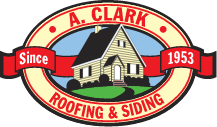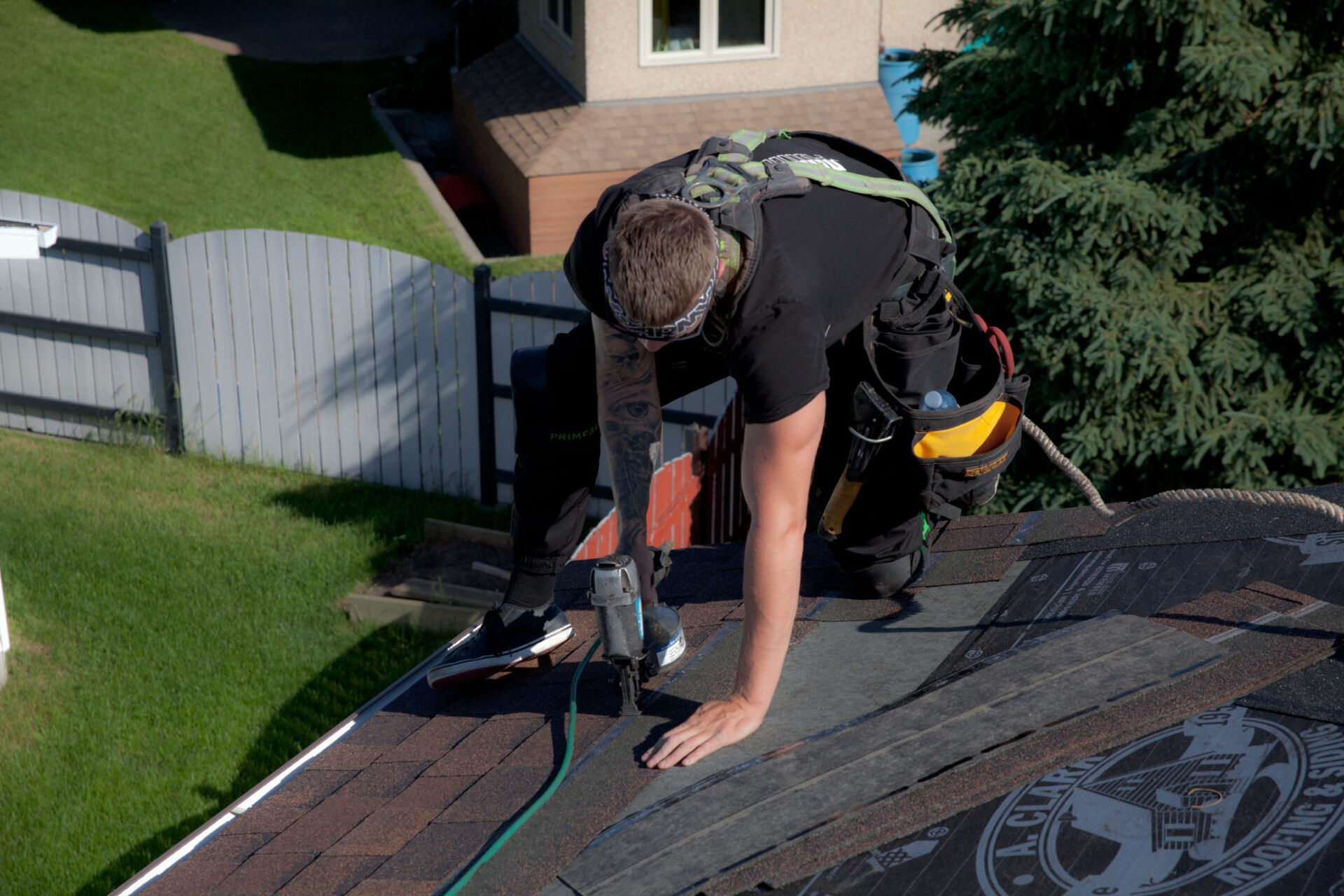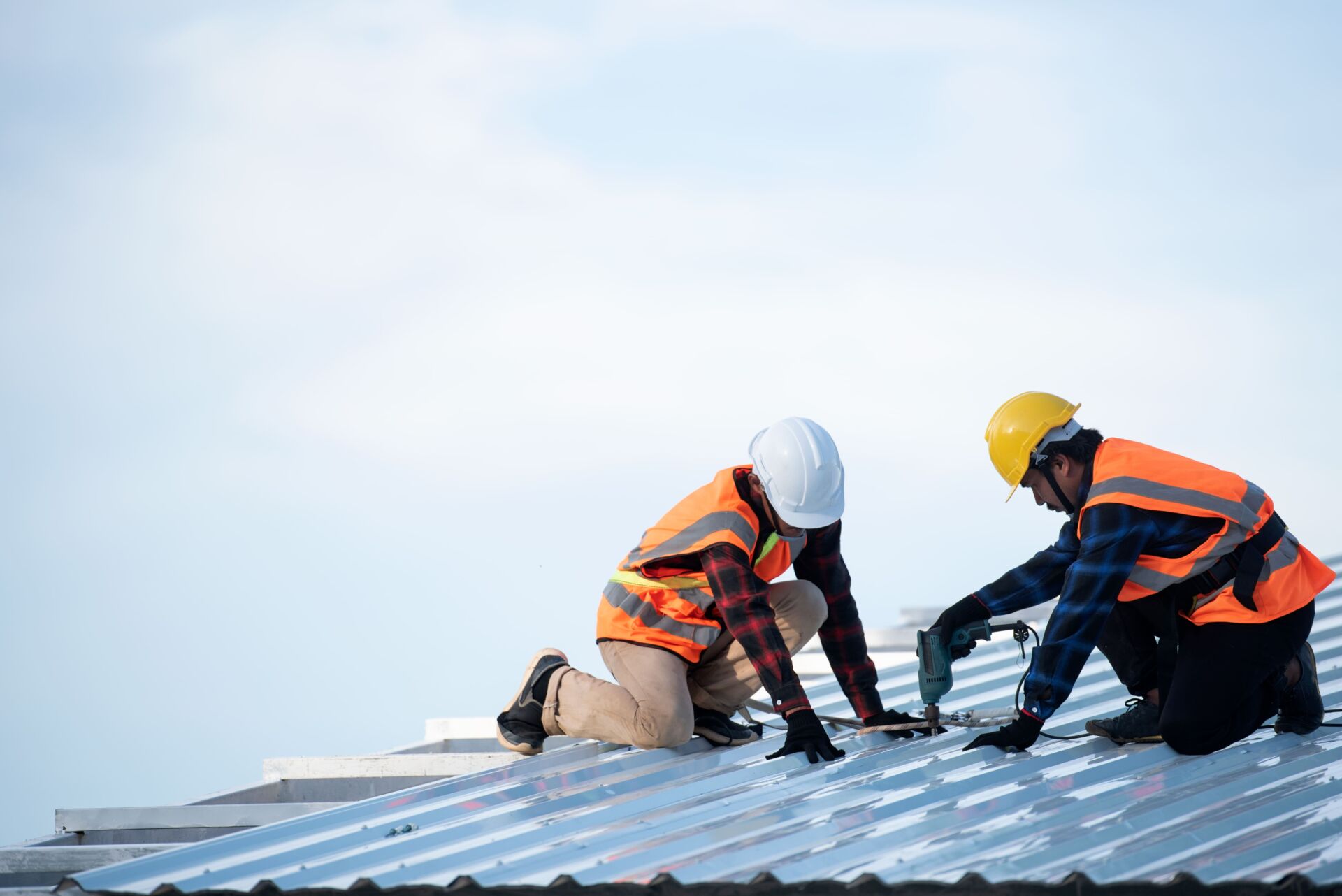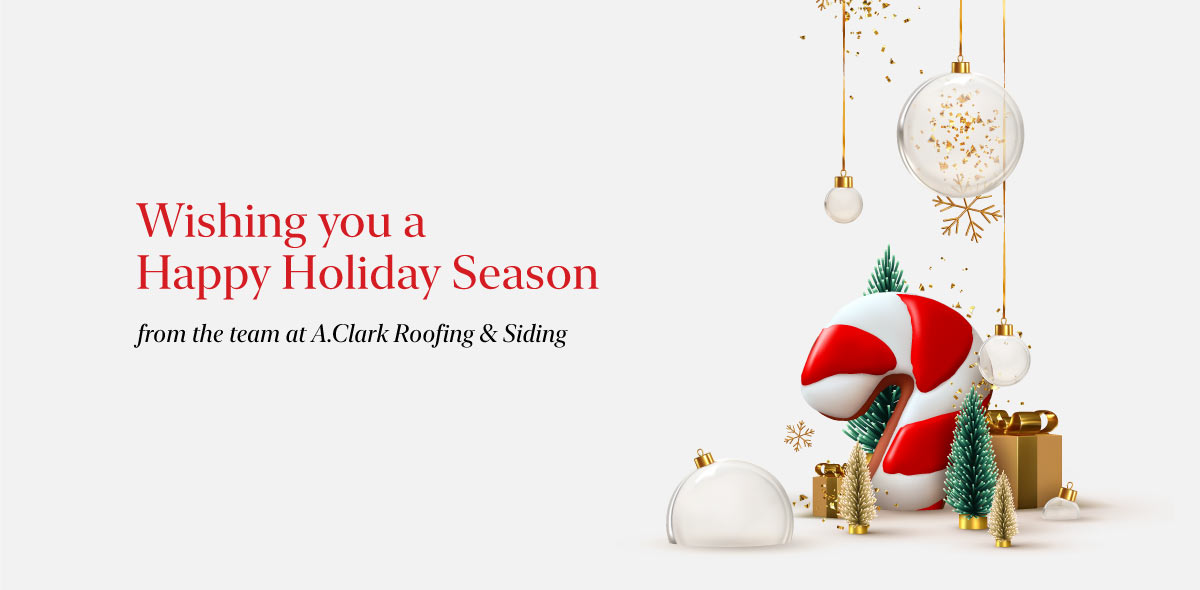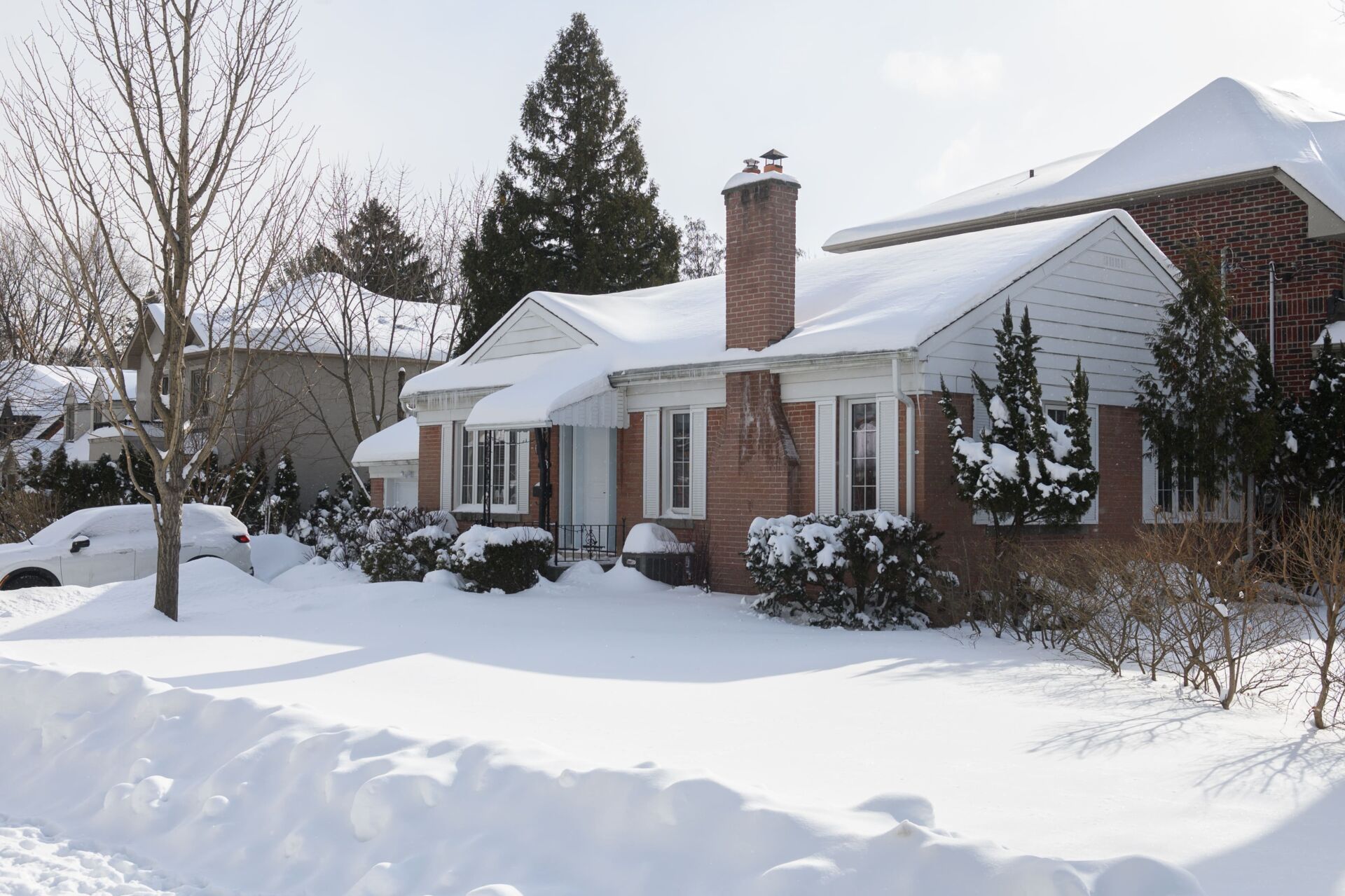Choosing the right roofing material for your home goes beyond aesthetics—it’s a key decision that requires balancing durability, cost, curb appeal, environmental impact, and how well the material performs in your local climate. One of the most talked-about comparisons in roofing today is fibreglass shingles vs. asphalt shingles.
At first glance, the two seem nearly identical. Both feature a base mat coated with asphalt and mineral granules. But the real difference lies in the composition of the base—fibreglass uses a woven glass-fibre mat, while traditional asphalt shingles rely on a heavier, paper-based mat.
If you’re planning a roof repair or full replacement, understanding the pros and cons of each option is essential. Let’s break down how fibreglass and asphalt shingles compare—so you can make an informed choice based on your home’s specific needs.
Fibreglass Shingles vs. Asphalt Shingles: What They’re Made Of
Asphalt Shingles
Traditional asphalt shingles, also called organic asphalt, are made from a paper material soaked in asphalt and coated in layers of non-synthetic ceramic material. They are:
- Popular: Asphalt shingles are Canada’s most commonly used roofing material due to their affordability, durability, and ease of installation.
- Versatile: They come in a variety of styles, including three-tab, architectural, and luxury shingles, with various colours and textures that can mimic wood, slate, or other high-end materials.
- Weather Resistance: Modern asphalt shingles are designed to withstand harsh weather conditions, including high winds, hail, and extreme temperatures, making them a reliable choice for Alberta’s climate.
Fibreglass Shingles
Fibreglass shingles are very similar to asphalt, with many of the same benefits. That said, they’re made of a modern, lightweight material that features a fibreglass base rather than the paper-based of organic asphalt shingles.
Other features of fibreglass shingles include:
- Increased Insulation: The layer of glass fibre increases the heat resistance of these shingles, improving insulation in your home.
- Moisture Resistance: Fibreglass provides additional protection over paper-based material, sealing your home more effectively from moisture. This is especially helpful in Edmonton and Calgary’s fluctuating climate.
- Fire Resistance: Fibreglass shingles provide added fireproofing by eliminating the paper base of asphalt shingles.
- Strength: Although fibreglass shingles are thinner and lighter than asphalt shingles, the high-quality material can last 20 years or more, as they won’t dry out or warp.
- Value: Priced similarly to asphalt shingles, fibreglass shingles last longer, giving you more value for your dollar.
- Environmental Impact: Easier to transport due to their lighter weight nature, fibreglass shingles will reduce your environmental impact. They’re also easy to recycle!
- Innovation: Using innovative technology to improve shingle seals allows developers to create lighter, thinner products to enhance wind resistance and other features.
The Details: Installation, Performance, Durability & More
When it comes to the debate of fibreglass shingles vs asphalt shingles, it’s important to look at the details. Consider:
Weight & Installation
- Fibreglass shingles are noticeably lighter, making them easier to haul and install, reducing labour strain and cost.
- Asphalt shingles tend to be heavier and bulkier, requiring more effort to install.
Durability & Weather Resistance
- Fibreglass shingles offer excellent stability and won’t warp over time. They’re also extremely impact resistant—an excellent quality to have in Alberta’s hail-prone climate. They’re also moisture and decay-resistant due to their non-absorbent glass mat. That said, they can crack or become brittle over time in high-wind climates.
- Asphalt shingles, particularly enhanced versions like SBS-modified ones, offer superior resistance to wind uplift, cold damage, and impacts due to their thicker asphalt-saturated mat. However, they do not possess the same fire resistance as fiberglass shingles.
Lifespan & Maintenance
- Fibreglass shingles typically last from 25 to 50 years with proper upkeep and maintenance, reducing long-term maintenance and repair costs. This lifespan is owed to its added fire resistance and low-moisture retention.
- Asphalt shingles typically last 15 to 30 years, depending on the grade and quality chosen.
Energy Efficiency & Environmental Impact
- Fibreglass shingles reflect more heat, improving energy efficiency and cooling performance, and are often Energy‑Star rated.
- Asphalt shingles, especially lighter-colored or reflective variants, also offer energy savings, though less so than fibreglass.
Cost Considerations
- Material Cost: Asphalt shingles are cheaper on install—around $3/ft² installed—while fibreglass is about $6/ft², roughly double. That said, value comes down to more than just upfront costs.
- Long-Term Value: Although fibreglass shingles cost more upfront, their longer lifespan and lower maintenance requirements can offset initial expenses, saving you money over the long term.
- Installation: Fibreglass’s lightness often reduces labour cost marginally, but requires precise installation from an expert to avoid wind issues.
Fibreglass Shingles vs. Asphalt Shingles: And The Winner Is?
While both very similar, there’s a clear winner when it comes to fibreglass shingles vs. asphalt shingles. For reliability, durability, and value for your money, fibreglass shingles lead the charge. Fibreglass shingles offer superior fire resistance, reflectivity, and longevity, but to ensure long-lasting performance, have them installed by a professional roofing company.
Your Trusted Choice for Roofing Excellence in Calgary & Edmonton
At A. Clark Roofing & Siding, we combine skilled craftsmanship, premium materials, and the latest installation methods to deliver outstanding results—every time. We tailor each roofing project to your unique needs, ensuring a final product that’s as durable as it is visually appealing. Whatever you decide when it comes to fibreglass shingles vs. asphalt shingles, our team has the expertise to get the job done right.
When it comes to selecting the right shingles for your roof, we’re here to help. With A. Clark Roofing & Siding, you can expect:
- Professional installation by experienced crews
- Continuous quality checks throughout the project
- Custom solutions designed for your home and climate
- A commitment to your complete satisfaction
Ready to upgrade your roof? Contact A. Clark Roofing & Siding today for trusted advice and expert service tailored to Calgary and Edmonton homeowners.
